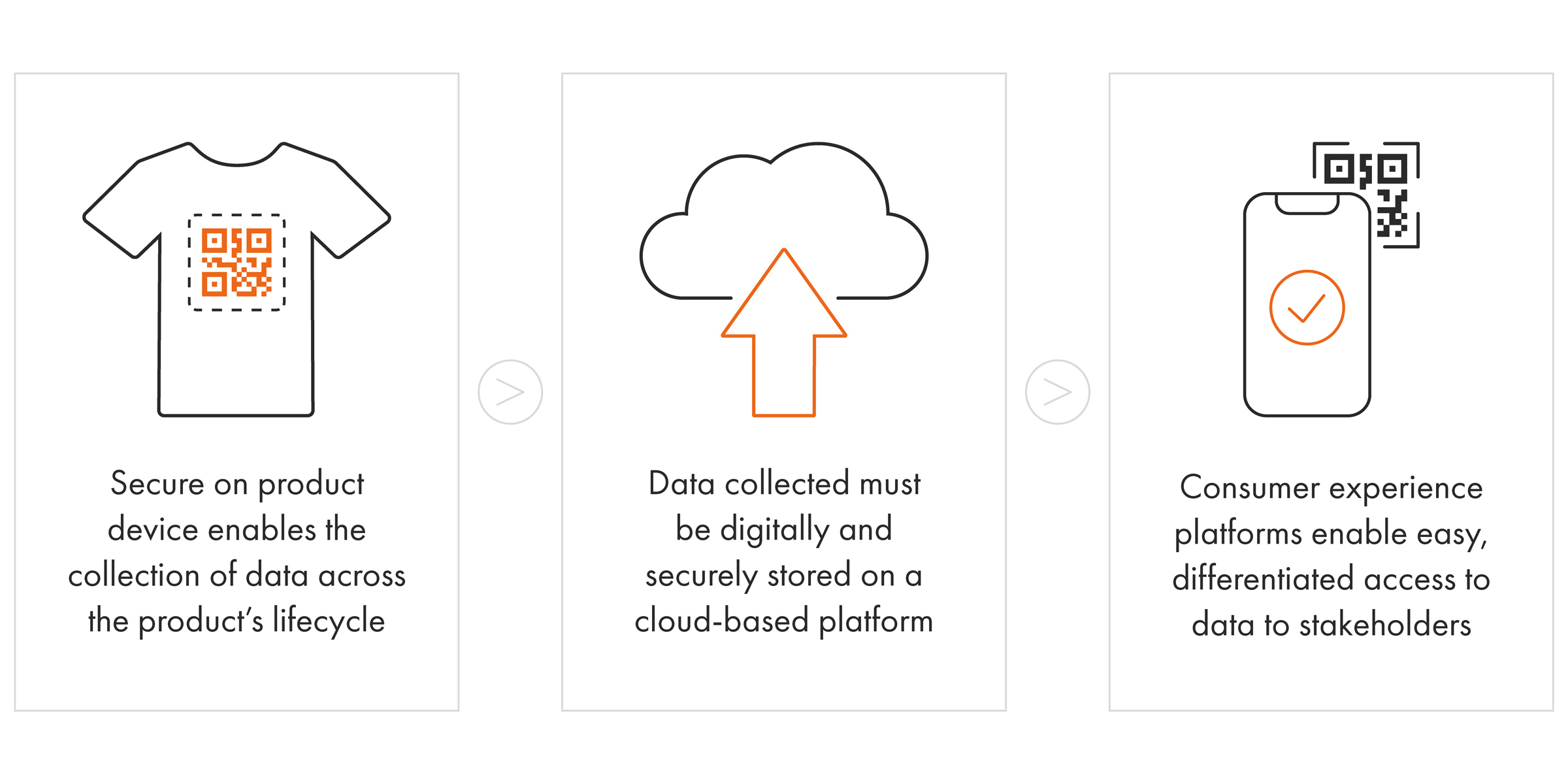The introduction of new regulations and sustainability compliance programs is a reality that brands worldwide are having to confront and adapt to. Across multiple industries, we work with customers to not only support them in adhering to these new requirements, but also to ensure their responses enable them to capture the wider business benefits.
Despite its origins in the European Union (EU), the forthcoming introduction of the Digital Product Passport (DPP) is currently concerning many global brands. Adapting to these emerging sustainability regulations is a daunting prospect, with evolving requirements that brands will soon have to adhere to. So the question for most is clear: how can you navigate the uncertainties and mitigate the implications for your supply chain?
Part of the EU’s Ecodesign for Sustainable Products Regulation (ESPR), and a key step under its Circular Economy Action Plan (CEAP), the proposed DPPs will share product information across the entire product lifecycle. This will provide transparency across raw materials, manufacturing processes, lifecycle, ownership, reusability, and recyclability of products. Several industries are in scope for the initial adoption of product passports, including batteries, apparel, and consumer electronics. All are significant in scale, and complex.
Batteries
A battery passport will be necessary for all batteries with a capacity of 2kWh or more that are sold within the EU.
Apparel
Apparel passports will provide data on carbon emissions, as well as enable consumers to view sustainable practices.
Consumer Electronics
With the EU right-to-repair regulation, durability and repairability will be important components of the electronics DPP.
DPPs will be used by consumers and stakeholders within supply chains, and are expected to be mandated by the EU across many industries by 2030. This could impact global movements of goods, as those imported into the European market are expected to require a DPP. While the timeline for deployment of DPPs in certain sectors may seem a long way off, there are advantages to starting to embrace them early. Not only can potential supply chain disruption be mitigated, but the prerequisite unique identities (UIDs) can also be repurposed, providing enablers for consumer engagement and demonstrating preparedness for circularity or other sustainability initiatives.
There are three main components of a digital product passport:

Build DPP foundations with a pilot approach to mitigate supply chain disruption.
Preparing for DPP compliance could have a significant impact on global supply operations. As such, OpSec recommends a pilot approach, where current processes can be adapted to minimize risk to supply chains.
Supplier engagement: Suppliers are engaged early on to ensure they are in a position to comply with upcoming data requests. This mitigates potential challenges around data availability, which is a critical dependency.
Exploit existing investments: The pilot program will utilize your existing ESG-related investments, data, and capabilities to extract maximum value from your existing assets and avoid unnecessary duplication of costs.
Integrated team approach: We involve all relevant internal stakeholders across functions to ensure that DPP implementation considers the value beyond EU compliance, including enhanced consumer engagement.

Why Partner with OpSec for DPP?
OpSec has extensive experience in deploying and supporting traceability and compliance programs for brands, while our engagement marketing software helps ensure the front end of solutions are well suited to DPP. For existing OpSec customers, we can help prepare and evolve current programs to become DPP compliant.
Ready to start your DPP journey? Partner with OpSec to ensure seamless compliance and unlock the full potential of digital product passports.
